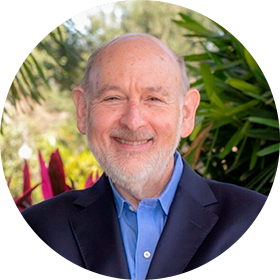
Nutrition Essentials For Mental Health: A Complete Guide To The Food-Mood Connection
Nutrition Essentials for Mental Health offers the mental health clinician the principles and practices necessary to provide clients with nutritional counseling to improve mood and mental health.
Get Your Copy of Nutrition Essentials For Mental Health
12 Things This Book Will Teach You
- Why nutrition matters in mental health
- The role of various nutrients in nourishing both the brain and the gut, the “second brain”
- Typical nutritional culprits that underlie or exacerbate specific mental disorders
- Assessment techniques for evaluating a client’s unique nutritional needs
- Counseling methods for nutritional change
- Leading-edge protocols
- Considerations for food allergies and sensitivities
- The effects of foods and nutrients on DSM-5 categories of illness
- Alternatives to pharmaceuticals for treatment
- Comprehensive, stage-based approaches
- Ideas for practical, affordable, and individualized diets
- Nutritional strategies to help with withdrawal from drugs, alcohol and pharmaceuticals
And much more…
Praise
“If there is one book that I would recommend for mental health professionals to use when discussing dietary changes with their clients, this is it. It covers every conceivable aspect of the interaction between diet and mental health, and synthesizes all of the leading research into a highly readable text.”

Lila Elizabeth Massoumi, MD
Chair, APA Caucus on Complementary, Alternative, & Integrative Medicine
“There’s no doubt in my mind that this is the go-to textbook for clinicians wanting to bring awareness to food and its impact on their clients’ mental health.”
Somatic Psychotherapy Today
“Love, love it. We’ve been waiting for a resource like this for a long time.”

Kabran Chapek, ND
Naturopathic Physician Amen Clinics Northwest
“A must-read guidebook for patients and practitioners.”

Kathie Madonna Swift, MS, RDN, LDN, FAND
Author of The Swift Diet
“I highly recommend this book to any professional or clinician working in the mental health field, as it will provide an invaluable resource for their patients.”

James M. Greenblatt, MD
Integrative Psychiatrist, Editor of Integrative Therapies for Depression
“Dr. Korn expertly guides readers to understand the complex—and fundamental—relationship between diet and mental well-being. This essential book will prepare clinicians to more effectively and holistically support their clients’ mental health.”

Dr. Tabatha Parker, ND
Education Director of the Academy of Integrative Health & Medicine
“A complete and highly usable guide to the landscape of nutrition and the mind-body connection.”
PsychCentral
Get Your Copy of Nutrition Essentials For Mental Health


Foreword by James Lake, MD
“The doctor of the future will give no medication, but will interest his patients in the care of the human frame, diet and in the cause and prevention of disease.”
—Thomas A. Edison
In the face of widespread and often inappropriate prescribing of powerful psychotropic medications, accumulating research evidence supports the use of a range of non-pharmacological approaches for the prevention and treatment of depressed mood, anxiety, dementia, substance abuse, and other common mental health problems.
Diet, exercise, and stress management fall under the broad heading of “lifestyle” changes and, among these, diet is certainly the most important. Dr. Korn’s new book is an important contribution to the growing dialog in the medical community and the general public on the role of nutrition in health and mental health. Nutrition Essentials for Mental Health: The Complete Guide to the Food-Mood Connection provides a comprehensive account of the evidence for nutrition in maintaining optimal mental health and treating many common mental health problems.
Dr. Korn offers clear, simple strategies that will guide you in helping clients think about foods that are better suited to their unique biochemical constitutions and mental health needs. The book provides a comprehensive, step-by-step review of the vital links between what we eat, how our brains function—or don’t—and our capacity to think and feel.
The book is a tour de force of the complex dynamic relationships that exist between the digestive process, the body, and the brain, beginning with the simple acts of chewing and swallowing and progressing through the complex phases of digestion and elimination. Dr. Korn introduces an important emerging concept in Western medicine called the “human microbiome,” according to which health and mental health are viewed in relation to the microbiome-gut-brain axis (Foster & McVey Neufeld, 2013).
The microbiome is essentially an ecosystem of symbiotic bacteria and a host of other microorganisms residing in the healthy gut. Recent studies demonstrate that the microbiome plays a critical role in brain development, behavior, and mental health throughout the life span. Bacteria in the microbiome activate neural path-ways and central nervous system signaling systems that play a role in mood regulation, memory, and cognition.
Recent research findings show that the gut microbiota are influenced by stress, diet, and a host of other factors in the environment, supporting Dr. Korn’s thesis that interventions based on dietary change and stress management are vitally important for prevention and treatment of common mental health problems.
Epidemiological data on relationships between diet and prevalence rates of depressed mood, dementia, and other common mental health problems support the central role of nutrition in the world’s major healing traditions from earliest historical times. Almost half of studies on nutrition and mental health published between 1971 and 2014 reported significant positive relationships between diet and depressed mood (Opie, O’Neil, Itsiopoulos, & Jacka, 2014).
A large population study revealed an alarming correlation between an increased prevalence rate of Alzheimer’s disease in developing countries and multiple lifestyle factors related to increasing globalization such as smoking, alcohol consumption, and the Western diet (i.e., high daily calories consumed and high consumption of animal fat in the diet; Grant, 2014).
These results are consistent with the findings of a 36-month prospective trial in which healthy adults who followed a Mediterranean diet experienced a reduced rate of cognitive decline compared to individuals following a Western-style diet with fewer vegetables and high animal fat (Gardener et al., 2014). In keeping with the latest research findings, changes in diet are frequently “prescribed” as a central part of treatment in Chinese medicine and Ayurveda, on the assumption that without addressing imbalances in the body and mind at a basic level, there may be little hope for changing the factors that manifest as illness.
The ancient wisdom of recommending dietary changes for improved health and well-being is reflected in a quote attributed to Hippocrates, the father of Western medicine, who said, “Let food be thy medicine, thy medicine shall be thy food.” In addition to the increased attention to the role of diet in maintaining optimal mental health, research findings from placebo-controlled studies support the use of high-potency nutrient supplements in the treatment of specific psychiatric disorders.
For example, foods rich in B vitamins such as whole grains and leafy green vegetables may be especially beneficial for mood regulation. Several B vitamins are essential cofactors that facilitate the synthesis of neurotransmitters that play a central role in mood regulation. Individuals with mental health problems who may be at risk of a nutritional deficiency because of their dietary preferences should be encouraged to take appropriate doses of vitamins, minerals, or other supplements that are known to be beneficial for their mental health problem.
As Dr. Korn explains, medical problems and mental illness often occur together; however, causal relationships between particular physical ailments and mental health are often difficult to discern. When a mental health problem is addressed with dietary changes that result in optimal nutrition, medical problems often improve. Sound nutrition advice should always comprise a cornerstone of a comprehensive integrative treatment plan. Even in cases where prescription psychotropic medications are a necessary part of treatment, simple changes in nutrition provide important “add-on” benefits to medications by optimizing levels of micronutrients critical for healthy brain functioning.
Various chapters cover the importance of nutritional assessment in mental health care, the best foods and nutrients for mental health, food allergies, sensitivities and special diets, and practical strategies for supporting optimal brain health when weaning off of psychotropic medications. Chapter 3 on nutritional assessment should be required reading for all mental health professionals. In this chapter, Dr. Korn provides a template for evaluating each patient’s unique history; identifies pertinent medical, social, and family issues that affect nutrition; and explains how to assess clients for blood sugar handling, food allergies and sensitivities, inflammation, oxidative stress, mitochondrial energy production, and the methylation pathway, all of which play critical roles in health and mental health.
Nutrition Essentials for Mental Health: The Complete Guide to the Food-Mood Connection is a powerful new synthesis of the role of nutrition in mental health. In these pages clinicians will discover many valuable clinical pearls and insights to guide them when advising their patients about practical, safe, effective, and affordable strategic approaches to eating and taking supplements for optimal health and well-being, as well as for preventing and treating common mental health problems.
By examining the relationship between what we eat and how our bodies and brains function, Dr. Korn addresses complex problems of mental health prevention and treatment at the most fundamental level. Optimal nutrition and the strategic uses of supplements should be included as a necessary and central component of integrative treatment addressing depressed mood, anxiety, bipolar disorder, substance abuse, attention-deficit/hyper-activity disorder, schizophrenia, cognitive decline, and dementia.
This book should be required reading for all psychiatrists and psychologists and, more importantly, for medical students and residents in psychiatry, family medicine, internal medicine, and pediatrics, where education on nutrition has been historically lacking.
James Lake, MD, is the former chair of the International Network of Integrative Mental Health and the author of Textbook of Integrative Mental Health Care (New York: Thieme, 2006)
References
- Foster, J. A., & McVey Neufeld, K. A. (2013). Gut-brain axis: How the microbiome influences anxiety and depression. Trends in Neurosciences, 36(5), 305–312.
- Gardener, S. L., Rainey-Smith, S. R., Barnes, M. B., Sohrabi, H. R., Weinborn, M., Lim, Y. Y., … Martins, R. N. (2014, July 29). Dietary patterns and cognitive decline in an Australian study of ageing. Molecular Psychiatry. [Epub ahead of print]
- Grant, W. B. (2014). Trends in diet and Alzheimer’s disease during the nutrition transition in Japan and developing countries. Journal of Alzheimers Disease, 38(3), 611–620.
- Opie, R. S., O’Neil, A., Itsiopoulos, C., & Jacka, F. N. (2014, December 3). The impact of whole-of-diet interventions on depression and anxiety: A systematic review of randomised controlled trials. Public Health Nutrition, 1–20. [Epub ahead of print]
About Leslie Korn
Leslie Korn, PhD, MPH, is a clinician specializing in mental health nutrition and integrative medicine. She was a core faculty member of Capella University’s Mental Health Counseling and PhD Programs for 10 years. She served as a Fulbright scholar on traditional herbal medicine, a Clinical Fellow at Harvard Medical School, and a National Institutes of Health-funded research scientist in mind/body medicine.
She is the author of nine books and she works with clients and clinicians to discover just the right diet and foods for personalized mental health.







